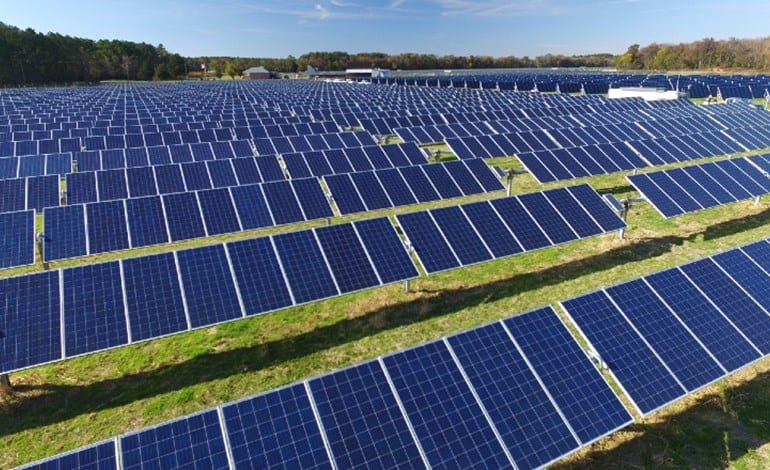The Greek government has received clearance from the European Commission for EUR 1 billion ($1.1 billion) in state support for two solar photovoltaic farms with a combined capacity of 813 megawatts (MW).
The Faethon Project consists of two units, each with a capacity of 252 MW. It will be equipped with molten-salt thermal storage units and an extra-high-voltage substation, which will enable it to supply electricity during the day and store any excess for use during peak consumption hours.
Meanwhile, the Seli Project is a 309 MW solar power generation facility with a lithium-ion battery energy storage system, according to a news release by the Commission announcing the granting of approval under European Union state aid rules.
“The storage units in both projects will help decouple electricity dispatch from production, thereby mitigating the intermittent nature of solar power and enhancing the stability of the Greek electricity grid”, the Commission said.
Expected to be completed by mid-2025, the projects will raise the share of net renewable energy in the Mediterranean country’s electricity mix by about 1.2 terawatt hours, or 2.1 per cent of Greece’s total power production in 2020, the Commission said.
The aid will take the form of two-way contracts for difference. Under a two-way contract for difference, an electricity operator sells power to the market and either pays or is paid for the difference between the market price and the strike price agreed in advance with a public entity. The company is entitled to receive payments when the market price is below the strike price.
The Commission says on its website that a contract for difference “stabilizes the prices by setting, in addition to a revenue guarantee, an upward limitation of the market revenues of the generation asset. “This is to ensure that producers do not gain windfall profits from excessively high market prices, while at the same time always having revenue certainty guaranteed by the government.”
Under the Greek aid, “[T]he strike price will be determined by a technical committee on the basis of, inter alia, a cost-benefit analysis and a risk assessment”, the news release stated.
“The reference price will be calculated as a monthly output-weighted average of the market price of electricity in the day-ahead markets.
“When the reference price is below the strike price, the beneficiaries will be entitled to receive payments equal to the difference between the two prices. However, when the reference price is above the strike price, the beneficiaries will have to pay the difference to the Greek authorities”.
Government assistance will be paid annually for over 20 years.
The aid was approved under fair competition rules of the 27-member bloc. “The aid has a limited impact on competition and trade within the EU”, the Commission said. “In particular, the aid is proportionate, and any negative effect on competition and trade will be limited in view of the design of the contracts for difference, which will ensure that the aid amount is kept to the minimum”.
Margrethe Vestager, Commission Executive Vice-President for Competition Policy, said in a statement, “These €1 billion measures support two innovative renewable projects that will accelerate the green transition while minimizing potential distortions to competition”.
“The measures will help the EU and Greece meet our decarbonization and climate neutrality targets, as well as reduce our dependence on imported fossil fuels, in line with the EU Solar Energy Strategy and the REPowerEU Plan”, Vestager added.

